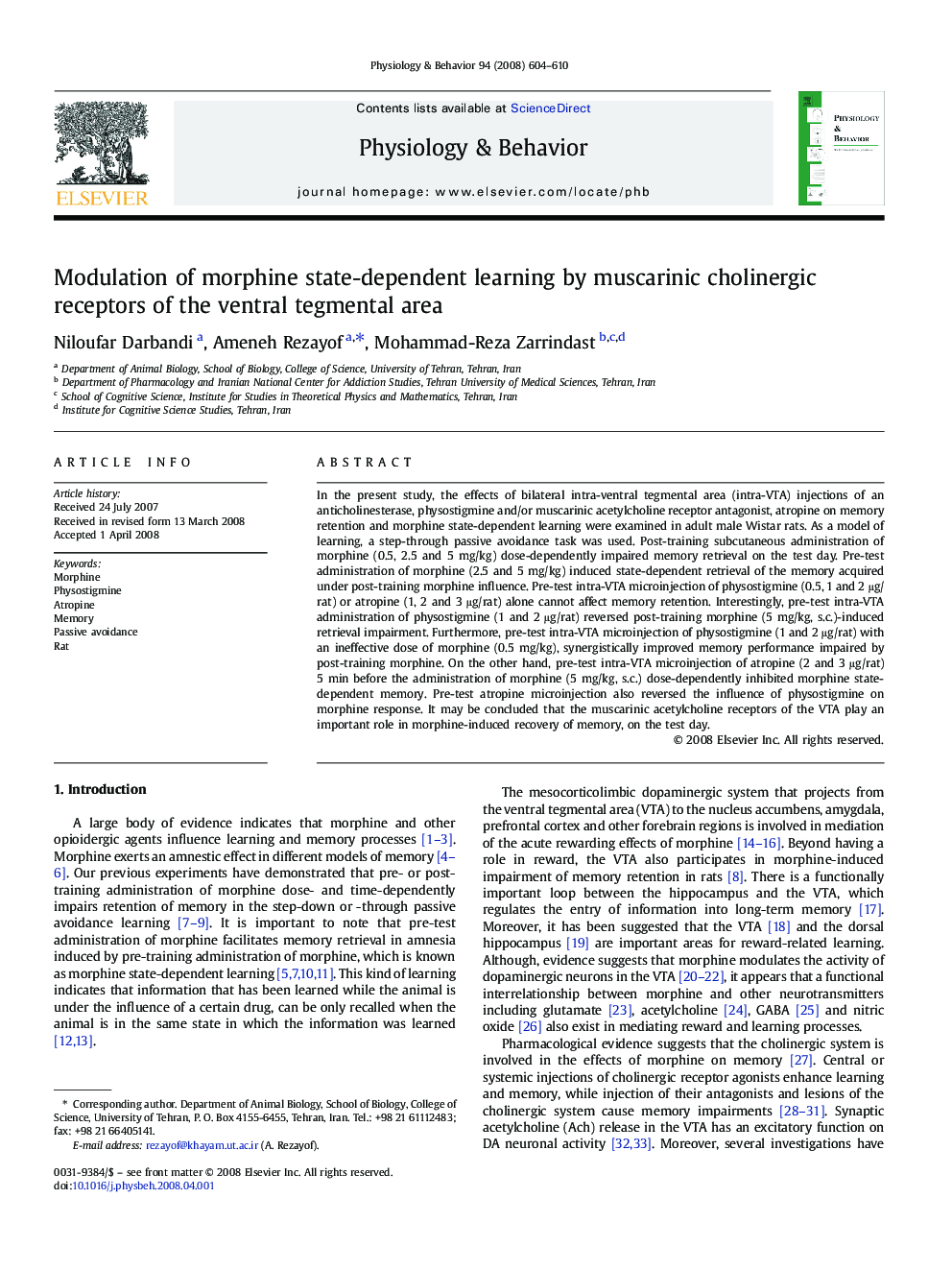| Article ID | Journal | Published Year | Pages | File Type |
|---|---|---|---|---|
| 2845285 | Physiology & Behavior | 2008 | 7 Pages |
In the present study, the effects of bilateral intra-ventral tegmental area (intra-VTA) injections of an anticholinesterase, physostigmine and/or muscarinic acetylcholine receptor antagonist, atropine on memory retention and morphine state-dependent learning were examined in adult male Wistar rats. As a model of learning, a step-through passive avoidance task was used. Post-training subcutaneous administration of morphine (0.5, 2.5 and 5 mg/kg) dose-dependently impaired memory retrieval on the test day. Pre-test administration of morphine (2.5 and 5 mg/kg) induced state-dependent retrieval of the memory acquired under post-training morphine influence. Pre-test intra-VTA microinjection of physostigmine (0.5, 1 and 2 μg/rat) or atropine (1, 2 and 3 μg/rat) alone cannot affect memory retention. Interestingly, pre-test intra-VTA administration of physostigmine (1 and 2 μg/rat) reversed post-training morphine (5 mg/kg, s.c.)-induced retrieval impairment. Furthermore, pre-test intra-VTA microinjection of physostigmine (1 and 2 μg/rat) with an ineffective dose of morphine (0.5 mg/kg), synergistically improved memory performance impaired by post-training morphine. On the other hand, pre-test intra-VTA microinjection of atropine (2 and 3 μg/rat) 5 min before the administration of morphine (5 mg/kg, s.c.) dose-dependently inhibited morphine state-dependent memory. Pre-test atropine microinjection also reversed the influence of physostigmine on morphine response. It may be concluded that the muscarinic acetylcholine receptors of the VTA play an important role in morphine-induced recovery of memory, on the test day.
